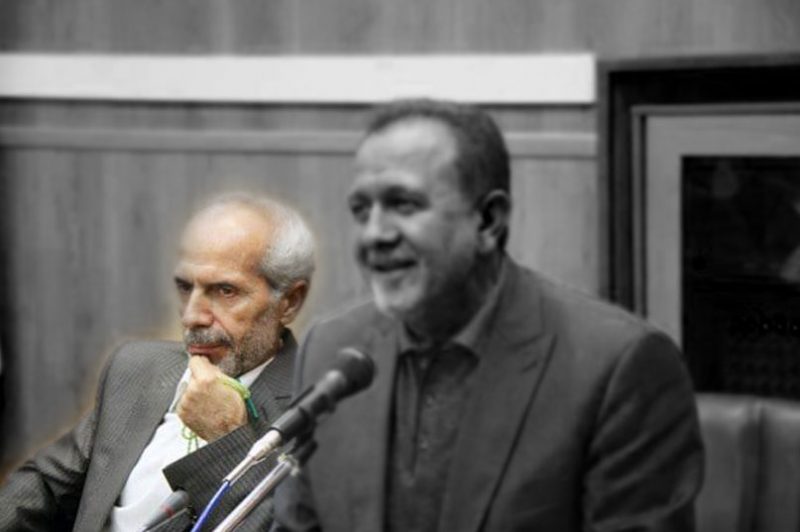Who is the godfather of the mafia network of the Execution of Imam Khomeini’s Order?
Iraj Mahmoud Kalaye
Iraj Mahmoud Kalaye has, for many years, spread a complex network of his relatives, such as his nephew’s son and close associates, within the Execution of Imam Khomeini’s Order and important economic companies. He has continued this networking even years after his retirement.
Having multiple key company board memberships within the Order for himself and his relatives is just a small part of this complex network. The Ministry of Defense, the Housing Foundation, and the Execution of Imam Khomeini’s Order are entities still immersed in the sticky hands of Mahmoud Kalaye’s network.




The spread of corruption in institutions under the supervision of the Supreme Leader of the Islamic Republic of Iran
The Execution of Imam Khomeini’s Order is a governmental organization that operates under the control of the Supreme Leader of the Islamic Republic of Iran. This Order was established in 1989 by a direct command from Ruhollah Khomeini, the founder of the Islamic Republic.
Currently, this Order is one of the largest economic cartels in Iran in key areas such as finance, banking and insurance, energy, oil and gas, and telecommunications.
According to the latest estimates in 2013, the assets of the Execution of Imam Khomeini’s Order were estimated to be over 95 billion dollars. Part of the expenses of the office of the Supreme Leader of the Islamic Republic is also funded by the Execution of Imam Khomeini’s Order.
In 2013, the U.S. Department of the Treasury placed this Order on the sanctions list.
The necessity of oversight for eradicating corruption
The executive and military branches, by re-employing individuals whose economic and political corruptions are evident, have shown that they do not have a serious intention to fight corruption in Iran. Most of the statements made by officials of the Islamic Republic regarding corruption are more like slogans. When the corruption cases of officials and their associates are exposed, instead of taking action, they either prevent investigations with leniency and tolerance or delay these investigations so much that time leads these cases to be forgotten.
When a state-owned company acts to award a project or sell part of its assets, it should use the laws related to bidding and auctions. However, relationships enable certain individuals or entities to benefit from advantages that are colloquially referred to as rent.
Media are one of the most important factors in reducing corruption. If the media can freely address topics such as institutional, executive, and military corruption and publish existing documents to inform the public, it will cause the society to react with awareness of the issues, which in turn forces the government and administration to take legal actions against corrupt individuals to prevent bigger crises.
However, in Iran, due to the restrictions and oversight of security and judicial agencies on the media, such an action is not possible. Free media reporting on corruption and society’s reaction to the issues are influential factors that can reduce corruption. A few years ago in Finland, the Minister of Health was forced to resign because he made three phone calls to his wife in Canada at the government’s expense. When this issue was raised by the media, public opinion reacted strongly, which led to the minister’s resignation.
If the Iranian government seriously intended to fight corruption, it should allow non-governmental oversight and inspection bodies to be strengthened and effective, and also ensure that the judiciary acts independently and without leniency and tolerance towards high-ranking officials and their associates.

